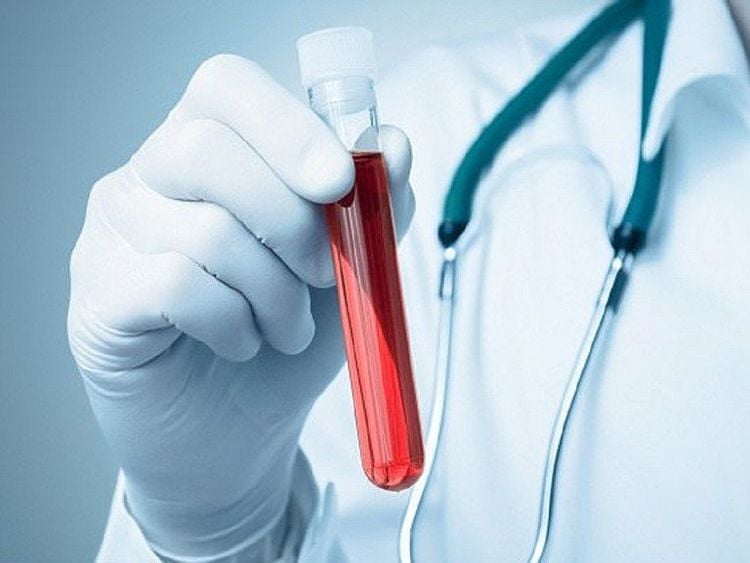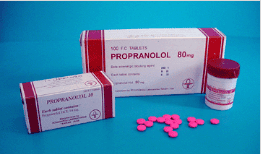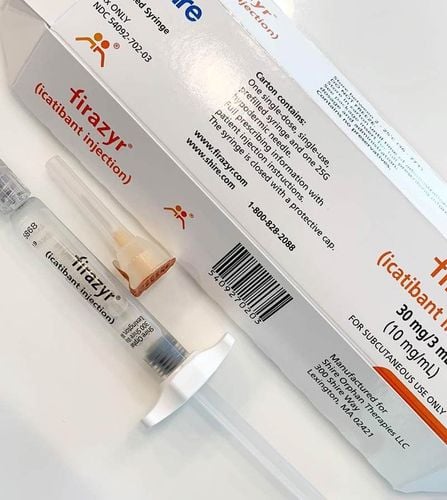This is an automatically translated article.
Basedow's disease is one of the most common thyroid diseases. The disease usually affects mainly women and people under the age of 40. Currently, there are effective treatments for Graves' disease, including surgery, drugs or radioactive iodine therapy. Depending on the condition and progression of the disease, each person will have a different treatment option.
1. What is Basedow's disease?
Graves' disease, also known as Graves' disease, is an immune system disorder that causes the thyroid gland to produce too much thyroid hormone, leading to hyperthyroidism. Although several other disorders can also lead to hyperthyroidism, Graves' disease is the most common cause.Normally, thyroid hormones participate in many important processes in the body, such as metabolism, temperature regulation, heart rate, etc. to your overall health. Graves' disease can appear at any age, but is most common in women and people under the age of 40.
2. Symptoms of Basedow's disease
Graves' disease often has the following signs and symptoms:
Mood swings, such as irritability, anxiety, hand tremors, temperature sensitivity, increased sweating, unusual weight loss, even though eating habits aren't changes Enlarged thyroid gland causing goiter Erectile dysfunction, decreased sex drive Changes in menstrual cycle Frequent bowel movements Graves' eye disease (accounts for about 30%): including bulging eyes, eye pain, eyelid swelling eyes, red or inflamed eyes, double vision, loss of vision, sensitivity to light Body fatigue Graves' dermatosis (rare): thick and red skin on the lower legs or top of the feet Fast, or irregular heartbeat (palpitations) In addition, several other medical conditions can cause symptoms of Basedow's disease. You should see your doctor if there are any potential problems associated with this disease for an accurate and timely diagnosis. For cases such as rapid, irregular heartbeat or loss of vision, the patient needs urgent care.

Mệt mỏi là dấu hiệu thường gặp nhất của bệnh Basedow
3. Diagnosis of Basedow's disease
The diagnosis of Graves' disease may include:
General physical examination: the doctor will examine the patient's eyes to see if they have abnormalities such as protrusion or irritation. In addition, your doctor will also check your thyroid, pulse, blood pressure, and other signs of Graves' disease. Blood tests: the patient will be asked to have a blood test done to determine the levels of two hormones, including free thyroxine (free T-4) and triiodothyronine (free T-3), being produced. or regulated by the thyroid gland. If your blood levels of thyroid-stimulating hormone (TSH) are lower than normal, and your thyroid hormone levels are high, you may have Graves' disease. Radioactive iodine absorption test: Iodine is a substance that plays an extremely important role in the production of thyroid hormone. To diagnose Graves' disease, your doctor will perform a radioactive iodine uptake test to determine how much iodine is absorbed by the thyroid gland. If the results show that an abnormally large amount of iodine is absorbed, this means that the thyroid gland is producing too much thyroid hormone. Ultrasound: uses high-frequency sound waves to create images of structures inside the body. This method can show enlargement of the thyroid gland, and is especially useful for patients who cannot absorb radioactive iodine, such as pregnant women. Imaging tests: if clinical assessment is unable to definitively diagnose Graves' disease, your doctor may order imaging tests, including X-ray technology, CT scan, or imaging. magnetic resonance imaging (MRI).

Xét nghiệm máu giúp chẩn đoán bệnh
4. Is Graves' disease curable?
Basedow's disease is one of the most common thyroid diseases. Most thyroid-related diseases can be treated to return thyroid function to normal. However, the patient will need to regularly take medication to keep the disease under control. Graves' disease hyperthyroidism is caused by immune system antibodies that attack the thyroid gland and stimulate this endocrine tissue to produce more hormones.
Currently, antithyroid drugs, surgery, and radioactive iodine are highly effective treatments that can restore thyroid function to normal. Radioactive iodine and surgery have the potential to cure hyperthyroidism by removing the thyroid gland.
However, thyroid-stimulating antibodies are usually not greatly affected by these treatments, so the underlying cause of Graves' disease still exists.
In certain cases, antithyroid drugs can cause the disappearance of thyroid-stimulating antibodies, thereby improving the symptoms of Graves' disease and the patient can stop taking the drug afterwards. However, these antibodies can come back at any time and cause Graves' disease to return.
In summary, the most important factor in restoring thyroid function to normal is the selection of appropriate treatment methods for each patient. Once diagnosed with Graves' disease, all patients need lifelong medical follow-up to ensure that their thyroid remains functioning within its best range.

Phẫu thuật đang là phương pháp đem lại điều trị bệnh Basedow cao
5. Treatment of Basedow's disease
The main goal of Graves' disease treatment is to suppress the thyroid gland from producing more hormones, while preventing the disease's negative effects on overall health. Some treatments for Graves' disease include:
* Radioactive iodine therapy:
For this treatment, the patient will be given radioactive iodine or radioiodine by mouth. Because the thyroid gland needs iodine to produce thyroid hormone, radioiodine enters these cells and then destroys the overactive thyroid cells. This helps to shrink the thyroid gland, the symptoms also gradually subside, but it usually takes a few weeks to a few months for patients to see noticeable results.
In addition to the benefits associated with the treatment of Graves' disease, radioiodine therapy may increase the risk of new symptoms or worsen Graves' ophthalmopathy. Side effects are usually mild and temporary, but this therapy may not be recommended if you have moderate to severe eye problems.
In addition, radioactive iodine therapy can cause other side effects, including neck pain or a temporary increase in thyroid hormone. It is also not recommended to treat women who are pregnant or breastfeeding.
*Anti-thyroid drugs:
Anti-thyroid drugs are a type of prescription medicine, which includes methimazole (Tapazole) and propylthiouracil. These two drugs should be used in combination to avoid the risk of recurrence of hyperthyroidism after treatment.
You should maintain using the drug for a period of more than a year, even longer to achieve the best results. In addition, antithyroid drugs may be used before or after radioactive iodine therapy, as an adjunct to treatment.
However, these two drugs can cause unwanted side effects, such as joint pain, rash, liver failure, or a decrease in white blood cells in the blood. Furthermore, methimazole is not used to treat women who are in the first trimester of pregnancy, because it can cause birth defects in the fetus.

Thuốc chống tuyến giáp chống chỉ định cho phụ nữ mang thai vì ảnh hưởng đến thai nhi
*Beta blockers:
These drugs are not capable of inhibiting thyroid hormone production, but they can block the hormone's effects on the body. In addition, beta-blockers work to relieve symptoms of Graves' disease, such as tremors, heart palpitations, anxiety, irritability, sweating, diarrhea, muscle weakness, or heat intolerance.
Certain Beta-blockers, including: Metoprolol (Lopressor, Toprol-XL), Propranolol, Atenolol (Tenormin), or Nadolol (Corgard).
Beta blockers are not usually prescribed for people with diabetes or asthma, as it can make controlling these conditions more difficult and complicated.
* Surgery:
Surgery is usually done by removing part or all of your thyroid gland. However, surgery can carry certain risks, including damage to the nerves that control the vocal cords and the parathyroid glands.

Thuốc Propranolol có tác dụng điều trị bệnh Basedow
6. Lifestyle and remedies for Basedow's disease
If you have Graves' disease, give priority to your mental and physical well-being. This includes:
Eat a nutritious diet Regular exercise Reduce stress by listening to music, taking a warm bath, or going for a walk Stop smoking For Graves eye disease: you should protect your eyes with glasses, or use lubricating eye drops, to help improve dry eye conditions. For Graves dermatosis: use over-the-counter creams or ointments that contain hydrocortisone to reduce swelling and redness. Vinmec International General Hospital is one of the hospitals that not only ensures professional quality with a team of leading doctors, modern equipment and technology, but also stands out for its examination and consulting services. and comprehensive, professional medical treatment; civilized, polite, safe and sterile medical examination and treatment space. Customers when choosing to perform tests here can be completely assured of the accuracy of test results.
If you have a need for consultation and examination at the Hospitals of the National Health System, please book an appointment on the website for service.
Articles source references: mayoclinic.org, thyroid.org, webmd.com
Please dial HOTLINE for more information or register for an appointment HERE. Download MyVinmec app to make appointments faster and to manage your bookings easily.













